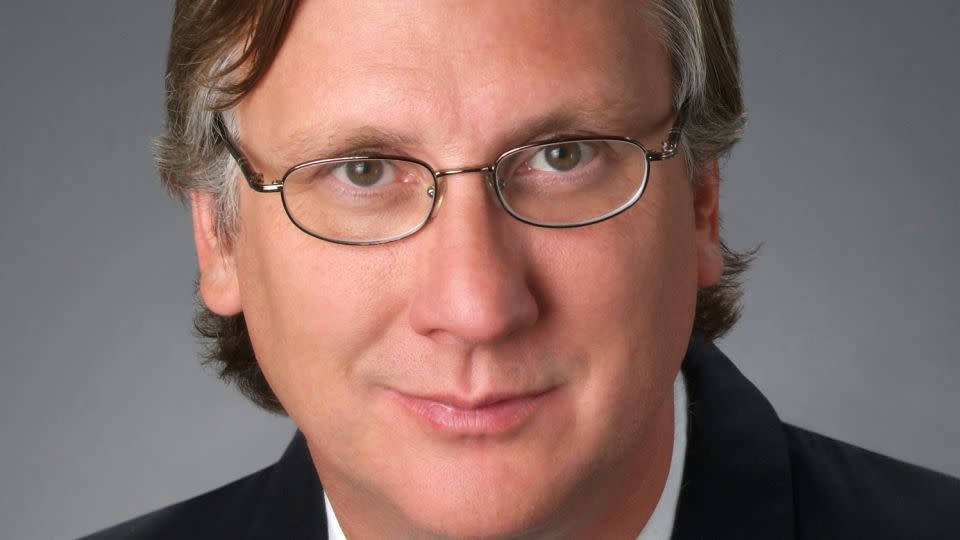Opinion: Nikki Haley is right about the Trump tariffs
- Oops!Something went wrong.Please try again later.
- Oops!Something went wrong.Please try again later.
Editor’s Note: Edward J. McCaffery is Robert C. Packard Trustee Chair in Law and a professor of law, economics and political science at the University of Southern California. He is the author of “Fair Not Flat: How to Make the Tax System Better and Simpler” and founder of the People’s Tax Page. The opinions expressed in this commentary are his own. View more opinion at CNN.
It has been pretty quiet on the tax beat of late.
Billionaires have been calling for increased taxes on themselves, perhaps because they know that no such thing is going to happen anytime soon.

Democrats continue to propose taxes on billionaires, perhaps because they know that no such thing is going to happen anytime soon.
A relatively modest ($78 billion) bipartisan tax deal, which strengthens the child tax credit and extends some of the business tax breaks from former President Donald Trump’s Tax Cut and Jobs Act (TCJA) of 2017, got through the House Wednesday but faces an uncertain future in the Senate.
This is not surprising. It is hard to do anything meaningful about taxes in a presidential election year. Except, that is, to talk.
Enter Nikki Haley. In a recent interview, while preparing for the critical South Carolina Republican presidential primary, Haley took aim at Trump’s call for more tariffs, specifically a 10% across-the-board charge on all imports: “This is a man who now wants to go and put 10% tariffs across the board, raising taxes on every single American. Think about that for a second.”
Second, Haley is almost certainly right: tariffs can be a regressive tax, borne largely, if not exclusively, by ordinary American workers. The moderate, non-partisan Tax Foundation found that the existing Trump tariffs will bring in a mere $74 billion in revenues over ten years, while costing jobs, lowering growth and depressing American wages. The Tax Foundation claims that Trump’s latest tariff proposals would act as a $300 billion tax on most of us.
OK, let us take Haley up on that, and think about it for a few seconds. Here are some thoughts:
First off, Trump did impose tariffs in his time as president. They ranged from 7.5% to 25%.
Second, the Trump campaign disputes that characterization of his new proposal, of course, (calling the Tax Foundation’s view “an economically illiterate statement put forward by a globalist Washington think tank funded by multinational corporate interests”) but we have known at least since Adam Smith that tariffs are generally poor tax (and trade) policy .
Third, despite all the wailing and gnashing of teeth by liberals and progressives about Trump and his tariffs, the Biden-Harris administration has mostly kept them in place.
Fourth, Trump, being Trump, has effectively doubled down, by proposing another 10% round of tariffs (the proposal criticized by Haley and the Tax Foundation) and even sextupled down, mulling a 60% tariff on China, in particular. Even if the first round of Trump tariffs produced modest revenues with modest downsides, the harms are likely to get worse as the rates rise, as we may recall from the Smoot-Hawley Act of 1930, which may well have exacerbated the Great Depression.
So, after a few seconds of thought, here is the thing. Haley is right. Trump’s plan is to impose a 10% tariff that acts like a sales tax that will mainly fall on ordinary workers, the kind who shop at Walmart, although it is nominally targeted at foreigners. Who is likely to benefit most from any future Trump tax cuts? Likely the rich, the kind of people who do not shop at Walmart. This is perfect, inverse-Robin-Hood-Republican-tax-policy: take from the poor to give to the rich. This has been a through line from Herbert Hoover to Ronald Reagan and now Trump.
One more thing: It is popular.
Like the high schooler giving the perfect speech in running for class president, Haley is losing to the class clown promising Taco Tuesdays in the cafeteria. The simple take-home on the tax rhetoric du jour? Haley is right; Trump wins.
Those who politically oppose Trump or his regressive tax policies forget at their peril his undeniable skills, even genius, at marketing. Trump University may have taught its students little of value, but they paid their tuition.
We live in an age in which politicians create the “realities” they sell, as on “The Apprentice.” People hate taxes. A plan that makes it look as if those mean, cheating foreigners will pay our taxes for us sounds great, and who has time to check the math?
The truth about tariffs is that they are a fee charged to people who import goods into the US. The government gets the revenue from the tariff, but the importer normally factors that amount into the price at which it sells products to Americans. So, consumers are ultimately footing the bill for tariffs like the ones Trump advocates.
Here is some advice: If a politician pitches a tax plan that sounds too good to be true, check your wallet. And while we all learn to get better at understanding tax and the other laws that affect us, day to day, we can stop blaming the salespeople-politicians for pitching their plans. We get what we vote for. Caveat emptor, as they say.
For more CNN news and newsletters create an account at CNN.com

